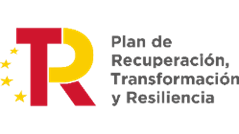Aerobic exercise or cognitive training, as well as the combination of both (referred to as environmental enrichment, EE) can enhance synaptic plasticity, improve memory function and ameliorate disease phenotypes in animal model for age-associated neurodegenerative diseases, such as Alzheimer’s disease (AD) and Huntington’s disease (HD). Similar observations have been made in humans, in both healthy individuals and patients and the applicants have contributed to both lines of research. Given that epigenetic regulations are central to the integration between environmental and genetic factors, we hypothesize that they are critical in conveying environmental therapies into beneficial effects. Epigenetic changes associated with AD and HD have been extensively characterized in mouse models and in human patients’ brains, including by the applicants. However, the role of epigenetic mechanisms in beneficial effects of environmental enrichment and exercise has remained largely unexplored. Particularly, the role of the non-coding RNAs could represent excellent biomarkers of environmental and exercise impact on the epigenome, since they may be detected in blood samples or Extracellular Vesicle (EV)-enriched fractions.
In this project, we propose to elucidate the mechanisms that underlie EE and Exercise as a non-pharmacological intervention towards age-associated dementia and test specifically the hypothesis that epigenetic changes to brain cells play a key role. In a first aim, AD and HD mouse models undergoing EE and/or Exercise will be used to lead cell-type specific multi-omics (genome-wide analyses of chromatin and transcriptional modifications) and build computational regulatory models in the context of chromatin dynamics in two brain regions affected by the diseases, further identifying non-coding (nc)RNAs as biomarker candidates for efficient therapy. Behavior and brain MRI will attest for beneficial effects of such stimulation. Epi-editing approaches will bring mechanistic insights. The second aim is designed to translate our data to human searching for a noninvasive candidate ncRNA biomarkers isolated from blood samples of AD and HD patients (collaboration with neurologists), that could be relevant of successful EE and/or exercise strategy. Further, enrichment of ncRNA biomarker candidates will be assessed in specific circulating extracellular vesicles from the plasma. Lastly, selected RNA markers will be tested for their ability to reproduce identified epigenomic changes in human-derived cellular systems and further validated in new cohorts of patients.
By providing insights in molecular/cellular, sex and age-dependent mechanisms underlying non-pharmacological interventions such as EE/Exercise in main brain regions affected by AD and HD, our data will offer novel opportunities for medicine personalization. Defining the specific epigenetic response to EE/Exercise and a mean for its biological tracing will bring further opportunities to define new therapeutic strategies or use combinatorial therapeutic strategies supporting non-pharmacological ones (epi-drugs or RNA-based therapeutics).





